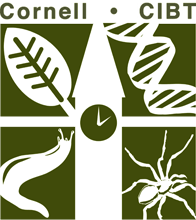Anna Leiss
Science Teacher






















Standard 8: Professional Development
I engage in reflective practice and continually seek to improve their knowledge base and effectiveness as teachers, make positive contributions to the culture of my fields, and demonstrate the dispositions of an emerging professional.
One of the many reasons I want to be a teacher is that I know I will never be bored and it is a profession where I can continually grow and learn. I am also fortunate enough to be involved in a discipline that is continually changing and evolving. I am excited to learn and grow with my field and it is my responsibility to myself, my students, and the community that I maintain current knowledge of my field.
Just as in scientific practice, a teacher is always questioning and changing. Each teaching day there is an opportunity to reflect and improve in pedagogical practice. I look forward to reflecting with my colleagues and problem-solving in a team environment. Ken Zeichner and his teacher education experience has shown the importance of developing a reflective teaching practice and I believe this is an essential component to my development as a responsive and effective educator. A teacher has a responsibility to educate students with up-to-date content but also with the most effective teaching practices for all learners. Building up a repertoire of effective methods and teaching techniques is imperative to a teacher whose classes will change at least on an annual basis if not on a daily basis. The practice of reflective self-study can also help in contributing to the field of education and allow a teaching professional to share their findings with their colleagues to potentially improve the teaching practices of others.
As a science teacher, the field is always changing and it is critical for me to stay informed on the most up-to-date science information. A teacher in a vacuum does more harm than good to their students. There are a vast amount of resources science teachers can use to stay informed in the latest content as well as new classroom technology and resources. Effective teachers also use the resources available at their own school through collaboration with their colleagues and teaching teams. A teaching professional will also work with his or her colleagues in a way that promotes a culture of problem-solving. In this way a teacher can provide the best and most appropriate education for each student.
Most recently, before the 2020 pandemic hit, I led a group of colleagues at Borel Middle School in a monthly professional learning strand that focused on Google Classroom. I guided teachers through best practices of the Google Apps for Education and helped them develop the tools most relevant for them and their classes. This group of teachers was fortunate enough to be prepared for providing online teaching when our school switched to full-time distance learning.
Artifacts
CIBT Workshop
Before starting my student teaching experience I attended a workshop for new and preservice teachers hosted by the Cornell Institute for Biology Teachers. There I got the opportunity to collaborate with other teachers in my discipline, learn about the state living environment labs, and practice using new resources to add to my teaching repertoire. This has been a worthwhile, ongoing resource because I can borrow kits of materials for lessons and lesson plans are available online.
Sharing Nature: An Educator's Week
While working at Baltimore Woods Nature Center, I received a scholarship to attend Sharing Nature: Educator's Week at the Hog Island Audubon Camp in Bremen, Maine. This week-long experience involved hands-on workshops and excursions along the Atlantic Coast. I attended as an informal educator but worked with formal science teachers. This showed me a clear connection between my current and future lines of work and gave me insight to how I can incorporate more hands-on outdoor experiences in my science classroom.


